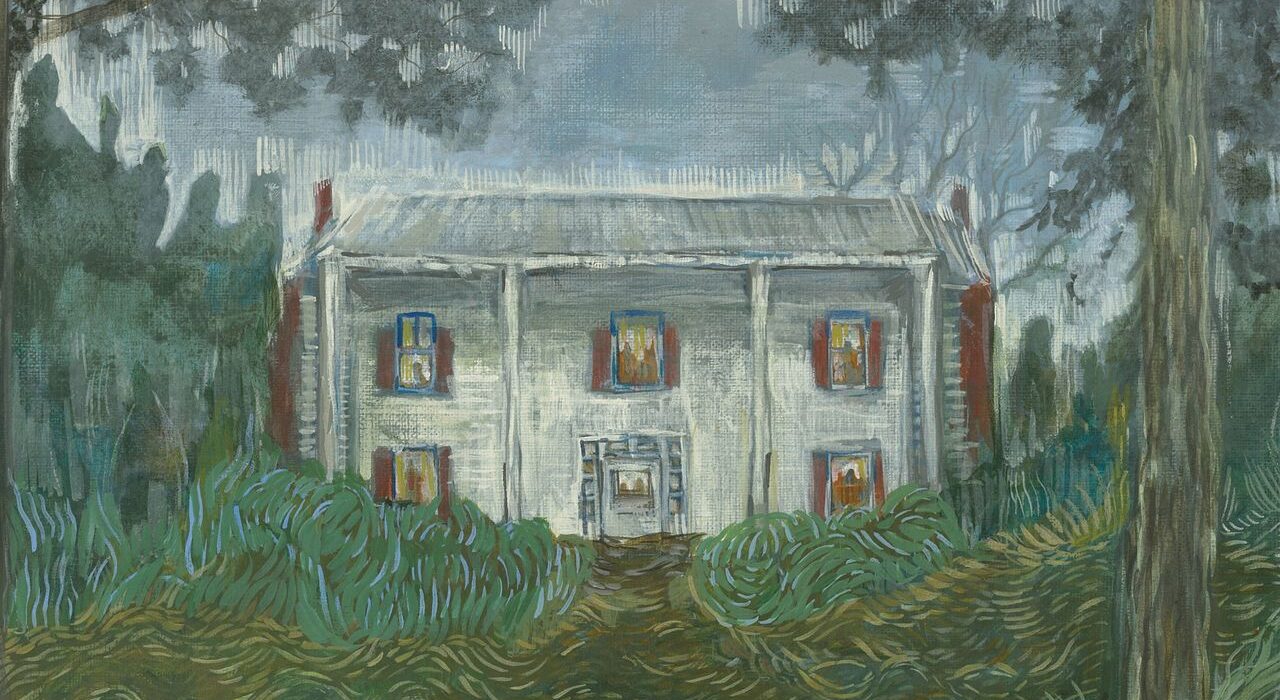The ensemble includes Mipso’s Libby Rodenbough, who plays with Child-Lanning and Morris in Sluice and Fust, and Magic Tuber Stringband, a group that likewise creates warped ethnographic archives of other worlds. They dissolve a mass of fiddles, cellos, acoustic guitars, banjos, harmoniums, organs, and mutating shape note singing in a warm, radiant, brainwave-spiked singularity. “I Want to Die Easy,” based on the revered Smithsonian Folkways recording that Sam Amidon’s parents sang on, eases us into the continuum from traditional to turbulent: Conventional close harmonies, bathed in the silo’s long reverb, open out into lush gospel stacks and start poking into tart modernist corners. This alternate Appalachia’s roots include classical minimalism, the arcane edges of jazz, process art, and musique concrète.
“Everlasting” transforms a hymn into a locust swarm of electroacoustic psychedelia, while the MIDI-juiced “Doxology (I),” based on a Sacred Harp hymn, is a pitch-shifted tiny anthem in the line of Macha’s “Believe” cover, so sweet you wish there were more than 72 seconds of it. And there are two tour-de-force deconstructions of English ballads, “Lord Randall” and “Lord Bateman,” the latter heroically convolving for 20 prismatic minutes. It sounds like someone dragging a sack of wind chimes and rusty shovels in some weird, quantized cartoon reality, with strange liquid bends like shooting stars in a desert sky. Above all, Weirs are amazing at sticking to the moment like glue, letting it unfold, never rushing, reaping those rewards. In their deconstructed folk music, it’s not the stories that sweep me away; it’s the sound, and the sense of a hidden continuity between what seems a more coherently structured time and our scrambled, deracinated age. Weirs hit the mark with gorgeous idiosyncrasy, retrieving the tangible energy of the present from the illusions of the past.

